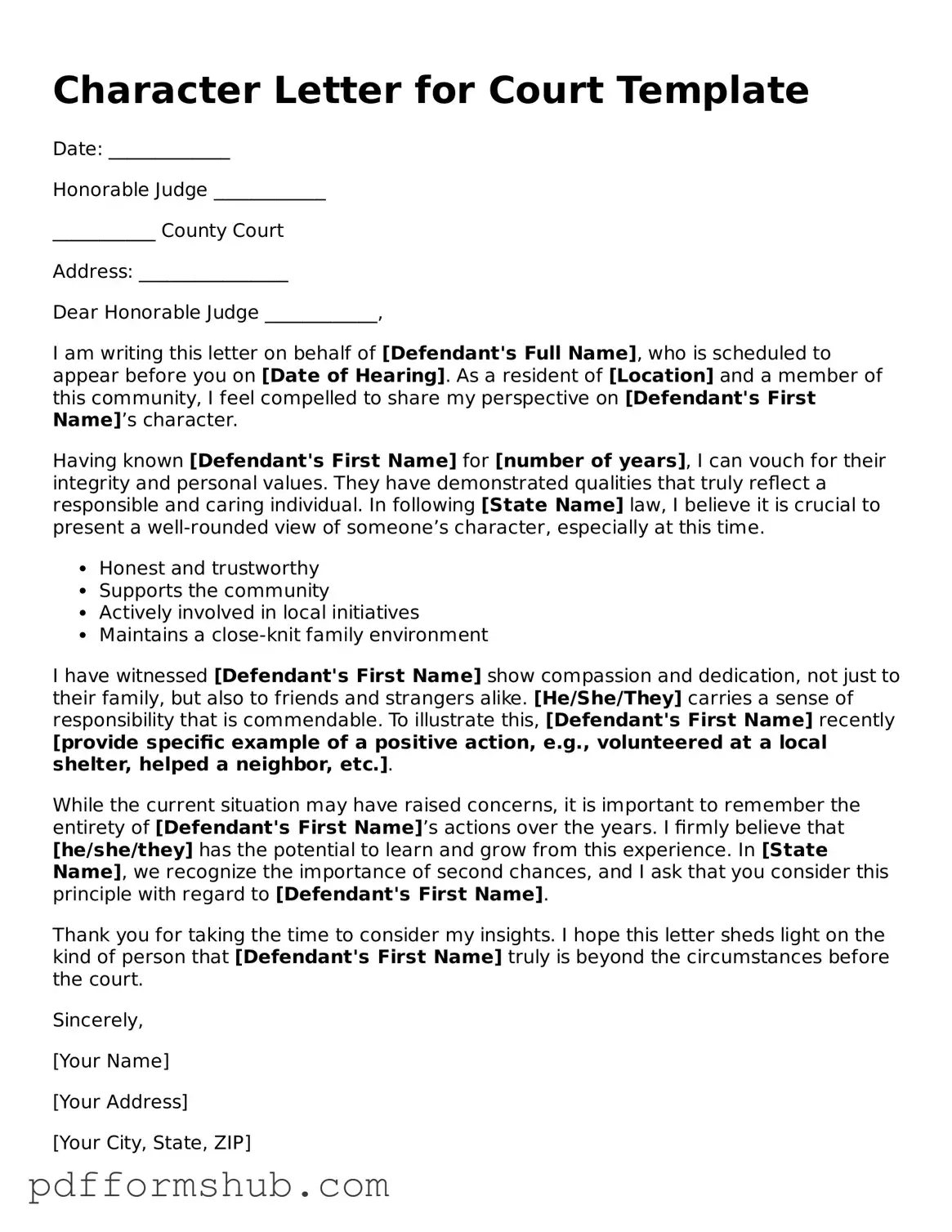Valid Character Letter for Court Form
The Character Letter for Court form is a written statement that provides insight into an individual's character, often submitted during legal proceedings. This letter can be a powerful tool, as it helps the court understand the person's background, values, and community ties. To learn more about how to fill out this form, click the button below.
Customize Form

Valid Character Letter for Court Form
Customize Form

Customize Form
or
Free PDF Form
Short deadline? Complete this form now
Complete Character Letter for Court online without printing hassles.